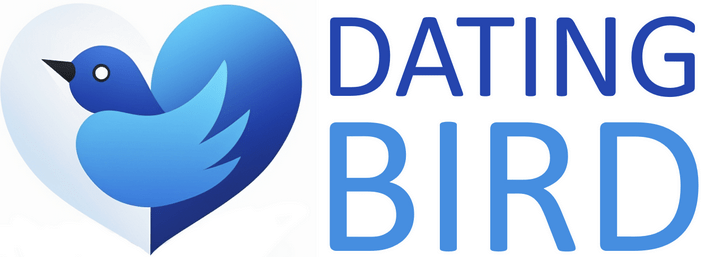An algorithm in internet dating is a mathematical process used by dating platforms to match users based on a variety of factors, including shared interests, compatibility, and geographic location. It's the science behind your potential matches in the Canadian online dating scene.


Explaining the Algorithm in Internet Dating in Detail:
In the sphere of internet dating, an algorithm serves as a digital matchmaker, employing mathematical formulae and processes to pair users with potential partners. These algorithms are not random, but are designed with a clear purpose: to find the most compatible matches based on the users' profiles, preferences, and interactions. The algorithm analyzes data from a user's profile, such as age, location, hobbies, and relationship goals, and compares it with the data of other users. This process is done in a fraction of a second, delivering a list of potential matches to the user. The algorithm's purpose is to increase the chances of a successful match, thereby optimizing the user's experience on the dating platform.
"An algorithm in internet dating is a digital cupid, using data to pair users with potential partners."
However, it's worth noting that the efficacy of these algorithms is a topic of ongoing debate in the scientific community. While some studies suggest they can be effective in identifying compatible matches, others argue that human attraction and compatibility are too complex to be reduced to data points. As such, while algorithms play a prominent role in internet dating, they are not the sole determinant of successful matches.
Good Examples of Algorithms in Internet Dating:
In the vast universe of internet dating, algorithms are the unseen puppeteers pulling the strings of digital romance. They are the brain behind the matches, working silently in the background. Major dating platforms like eHarmony, Match.com, and OkCupid employ complex algorithms to suggest potential matches. For instance, eHarmony uses a compatibility matching system based on a comprehensive questionnaire, including aspects like emotional temperament, social style, cognitive mode and physicality. OkCupid, on the other hand, uses a mathematical algorithm that rates the match potential between users based on their responses to a series of questions.
"Algorithms in internet dating platforms, like silent puppeteers, pull the strings of our digital love stories."
Tinder, famous for its swiping feature, uses an Elo rating system, similar to that used in chess, to rank users based on their desirability. The more right swipes (likes) a user receives, the higher their Elo score, and vice versa. These examples underline the varying approaches to matchmaking algorithms within the online dating industry, each with its own unique twist on the quest for love in the digital age.
What Really Matters in an Algorithm for Internet Dating? Or Not?
In the realm of online dating, the success of an algorithm can be determined by several critical factors. The accuracy of an algorithm is paramount as it directly influences the quality of matches. It should be able to analyze user data effectively and make precise predictions about potential matches. Transparency is another significant factor. Users should have an understanding of how their data is being used and how the algorithm works in generating matches. Furthermore, adaptability is crucial. The algorithm should be able to learn from user behavior and preferences, and adjust accordingly over time.
"The ultimate goal of an algorithm in online dating is to facilitate meaningful connections by accurately predicting potential matches."
Lastly, privacy and security of user data should not be compromised. Users entrust their personal information to these platforms and expect it to be handled with utmost care.
- Accuracy: Precise predictions for potential matches
- Transparency: Clear explanation of data usage and matchmaking process
- Adaptability: Learning from user behavior and adjusting over time
- Privacy & Security: Safeguarding user data
These aspects can significantly influence user satisfaction and the overall success of an online dating platform.
Why is an Algorithm in Internet Dating so Important? Or Not?
In the realm of online dating, algorithms play a pivotal role, acting as the invisible matchmakers. These sophisticated mathematical models are designed to analyze user data and predict compatibility between profiles. The goal is to streamline the search process, saving users time and effort by presenting them with potential matches that are most likely to result in a successful pairing.
"Algorithms serve as the backbone of online dating platforms, transforming user data into potential love connections."
The importance of algorithms in online dating is twofold. First, they help users sift through the vast pool of profiles, narrowing down the choices to those that align with their preferences and interests. Without algorithms, finding a suitable match would be like looking for a needle in a haystack.
Second, algorithms also adapt to user behavior over time. They learn from past choices, continually refining their predictions to improve match accuracy. This dynamic nature of algorithms makes them an indispensable tool in the ever-evolving landscape of online dating.
However, it's important to note that while algorithms can increase the likelihood of finding a compatible match, they are not foolproof. The human element of attraction and love is complex and unpredictable, and cannot be fully encapsulated by an algorithm.
To summarize, the role and relevance of algorithms in online dating are significant, but they are not the be-all and end-all of finding a perfect match.
What are the Challenges with an Algorithm in Internet Dating?
Despite the groundbreaking role of algorithms in online dating, they are not without their challenges. One significant issue is the inherent bias that can be built into these algorithms. Since they are programmed by humans, they can unintentionally reflect the biases of their creators. This can lead to a lack of diversity in potential matches, which is a significant concern in the world of online dating.
"The inherent bias in dating algorithms is a significant challenge in online dating."
Another challenge is the potential for manipulation. Some users may attempt to game the system by providing false information or engaging in certain behaviors to increase their visibility or attractiveness.
Lastly, there's the accuracy of the algorithms themselves. While they can predict compatibility based on certain criteria, human attraction is complex and can't be accurately measured or predicted by an algorithm.
In conclusion, while algorithms play a crucial role in online dating, they are not without their challenges and limitations.
What is the Difference Between an Algorithm in Internet Dating and a Social Media Algorithm?
In the realm of digital connections, the algorithm used in internet dating and social media platforms may seem similar, yet they serve different purposes. While both algorithms aim to provide personalized content, the algorithm in internet dating sites is primarily designed to match potential partners based on compatibility factors such as interests, values, and personality traits. The algorithm takes into account various user preferences and behavioral data to suggest the most suitable matches. On the other hand, a social media algorithm is designed to prioritize and display content that is most relevant to the user's interests, interactions, and activity on the platform. Therefore, while both algorithms operate on data-driven strategies, the end goal is different: one focuses on fostering romantic connections, while the other aims to increase user engagement and content interaction. It's like comparing apples and oranges – both fruits, but serving different tastes.
FAQ
Question: What is an Internet Dating Algorithm?
Question: How does the Algorithm in Internet Dating work?
Question: Can you give examples of Algorithms in Internet Dating?
Question: What are the important aspects of an Algorithm for Internet Dating?
Question: Why is an Algorithm in Internet Dating so important?
Question: What are the challenges with an Algorithm in Internet Dating?
Question: How does an Algorithm in Internet Dating differ from a Social Media Algorithm?
Related articles
Articles with related questions
Written by:
 Emma
Emma is familiar with all topics related to finding a partner.
Emma had met her partner a long time ago on a dating site. Now she shares her experiences on various online dating sites, but especially on Dating-Bird.Not only does she know which dating site is currently the best, but she also loves to give tips on how to use it with a high probability of success. With her psychological background, she always has good advice on love and relationships.
Emma
Emma is familiar with all topics related to finding a partner.
Emma had met her partner a long time ago on a dating site. Now she shares her experiences on various online dating sites, but especially on Dating-Bird.Not only does she know which dating site is currently the best, but she also loves to give tips on how to use it with a high probability of success. With her psychological background, she always has good advice on love and relationships.
